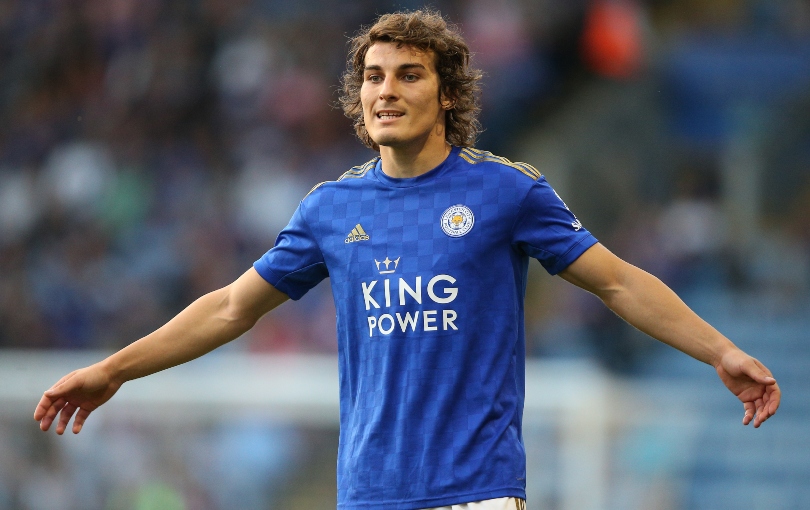Belgium manager Robert Martinez interview: "The opportunity to manage De Bruyne and Hazard is a challenge you sacrifice anything for"
Roberto Martinez's Belgium came third at the World Cup, sit atop the FIFA world rankings and have a golden generation the likes of which the country has never seen. But can they make it count at Euro 2020?
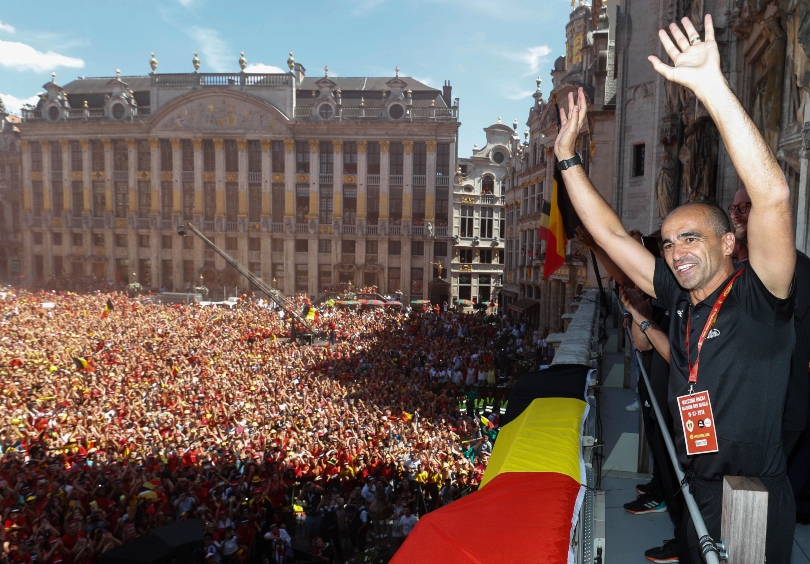
It’s June 19, 2000. In Brussels, a dark mood has descended across a city synonymous with dour-suited bureaucrats. While 48,000 people depart the King Baudouin Stadium, there’s a familiar feeling of aching disappointment laying heavy in the air as Euro 2000 hosts Belgium face up to leaving their own party early.
Across the North Sea in northern England, a 20-something Spaniard is on his summer holidays, having missed out on Wigan Athletic’s botched Second Division play-off adventure through injury. The odds of Roberto Martinez eventually managing Belgium look even slimmer than those of the Euro 80 finalists competing for international honours once again. A country better known for its cyclists appears to be hurtling down a hill with faulty brakes and a rusty chain.
Martinez is focusing on the final 12 months of his Wigan deal, five years after touching down at Springfield Park as one of the Latics’ fabled ‘Three Amigos’ alongside Jesus Seba and Isidro Diaz. The last of the Spaniards standing, he has just watched the wheels come off Wigan’s promotion challenge under Wembley’s Twin Towers against Gillingham. He knows that they – much like Belgium – face a mammoth rebuilding job.
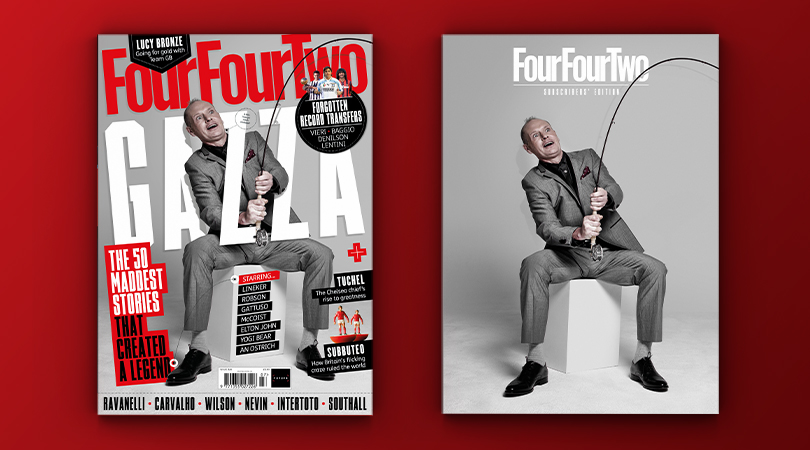
Wind forward to mid-2021 and, with the coronavirus pandemic still raging, Martinez finds himself in very different circumstances – staring into the camera of his laptop from Brussels for a meeting with FourFourTwo. Sat atop FIFA’s world rankings, his Belgium team have recently completed their latest round of competitive fixtures, signing off with an 8-0 battering of Belarus. That result, coupled with a victory over Wales and a draw in the Czech Republic, should ensure their passage to Qatar 2022 will be as smooth as a Kevin De Bruyne through-ball.
Is it any wonder after a year’s delay, then, that Martinez is eagerly awaiting Euro 2020 like a kid at Christmas? Belgium are all set, and their coach has one goal in sight…
CHECK OUT THE SQUAD Belgium Euro 2020 squad: Full team profile
It’s 21 years since the Red Devils’ limp Euro 2000 showing on home soil, and rather a lot has changed for both the team and their genial gaffer Martinez.
The best features, fun and footballing quizzes, straight to your inbox every week.
“I was intrigued by major tournaments,” the 47-year-old tells FFT ahead of his second as Belgium boss. “It’s a unique experience – you’ve got the entire country feeling all the emotions of the team. The first time I ever discovered football was through the 1978 World Cup in Argentina. I’ve always wanted to be involved in a tournament, but I never expected to be. I didn’t ever anticipate being at a World Cup or a European Championship at such a young age.
“At international level as a coach, you’re usually either involved very young or a little bit later in your career, but I’ve realised now that it’s a different role. Modern international football needs a dynamic approach. I only came for two years to be part of the World Cup and qualification for 2018 in Russia. Now it’s five years on and I’m looking ahead to a second major tournament, the Nations League Finals in October and then another World Cup in 18 months.”
Martinez might not sound like an especially young coach, but only three at this summer’s event were born after him – Wales’ Rob Page (46), North Macedonia boss Igor Angelovski (45) and Ukraine legend Andriy Shevchenko (44). There’s still a sense that the sands are shifting, though. Gareth Southgate, Frank de Boer, Paulo Sousa, Didier Deschamps, Kasper Hjulmand and Luis Enrique are all 52 or under and born within three-and-a-half years of one another. The days of national teams as the last post for managers tired of the daily grind are gone.
For the boss attempting to bring a first major title to Belgium, however, this was never part of the plan. All he really wanted to do was follow in his father’s footsteps.
“I always felt like I wanted to beat my dad,” he says, laughing. “He played until the age of 47, and I said that because we had the same genes I would do the same thing. Turns out my dad was a one-off in the family.
“My initial introduction as a manager had to be somewhere where I could have the help and support I needed. I ended up being the player-manager at Swansea, although I never played a minute of football there [from then]. I very quickly realised that it was time to focus on coaching, but it came in a natural way. I was retired by the talent that I signed. I look back and Ferrie Bodde, a Dutch player I got from Den Haag, retired me without me knowing.”
Despite his wistful reminiscing about the former Swans favourite, it’s hardly churlish to suggest Martinez has rather upgraded since. Where once was Bodde now lies Youri Tielemans, supported by a much-lauded and committed cast who mean serious business.
“I had the opportunity to work with Belgian players when I was at Everton,” remembers Martinez. “I was already intrigued by the country, because the diversity of this team is incredible. I had Marouane Fellaini, Kevin Mirallas and Romelu Lukaku, and you could immediately see they were all very different footballers; very different in the way they understood the game. Then when you faced players like Kevin De Bruyne, Jan Vertonghen, Toby Alderweireld and Eden Hazard in the Premier League, you realised the pool of talent in Belgian football was outstanding. I felt like the opportunity of managing these guys made it a challenge you would sacrifice anything for in terms of club level football. That’s the truth. It’s also why I’ve probably stayed in this role longer than the original plan.”
“Chris, I love you!” Romelu Lukaku has a message for Inter team-mate Christian Eriksen tonight ❤️ pic.twitter.com/ouIHGXKstzJune 12, 2021
Martinez took over at a particularly fraught time in August 2016, as Belgium licked their wounds following a chastening Euro 2016 quarter-final defeat to Wales. Marc Wilmots’ team had been heavily fancied to go all the way in France, but instead headed home with a manager under serious fire and questions about their mentality.
It was time for serious change.
Martinez’s maiden match at the helm that September – a 2-0 home friendly defeat to Spain during which his players were booed throughout – demonstrated the task ahead.
“Euro 2016 was a real disappointment – there was a lot of hurt and anger in that Spain game,” recalls Martinez. “It made me realise how important this team was to the country. There was so much passion. From the outset, the stakes were quite high... the expectations were very high.”
Belgium’s biggest stars were household names across Europe, after all. If Martinez harboured any doubts about their resilience thereafter, though, they were swept away in a relentless World Cup qualifying campaign where the Red Devils won nine of their 10 games, scored 43 goals and conceded only six. After Spain, they didn’t lose again until an agonising 1-0 defeat to France in the 2018 World Cup semi-finals – an unbeaten run stretching 23 internationals.
“I must admit that this is a very different situation to a lot of other teams in Europe,” says Martinez. “The players’ commitment to the national team is incredible. At a young age they leave home to carry on developing their careers abroad, then they come back together and almost bring a role of football ambassador to Belgium. They completely commit to the Red Devils.
“That’s the real secret of this Belgium side. They enjoy each other’s company, they enjoy having the aspiration of doing something historic and they’re happy to use their talent for the good of the team – and that’s rare. They know the role models they are for the modern generation in Belgium.”
At club level, the days of Anderlecht being in the mix for European titles – as they were during the late ’70s and throughout the ’80s – are long gone. Yet Belgium are proof that
a domestic league’s quality is no barometer of its ability to produce the kind of talent you would take home to meet the parents.
If this generation of players needed a big result to prove that, it came on July 6, 2018 at the Kazan Arena. Brazil 1-2 Belgium.
What a finish it was from @DeBruyneKev 🙌Watch highlights from Belgium's win over Brazil here: https://t.co/Pv2rzptuZG pic.twitter.com/QEfNspVJYwJuly 6, 2018
“You realise when you’re getting ready for a game against Brazil just what a daunting challenge it is,” reflects Martinez. “Everything is yellow, and there’s an inferiority complex as soon as you enter the stadium. Beating Brazil not only means that you’ve performed extremely well, but that you’ve also beaten that inferiority complex – the kind any nation has when they take on Brazil at a World Cup. The result was obviously essential, but the way the team performed for 65 minutes will stay with people in Belgium for generations and generations to come.”
A Fernandinho own goal and De Bruyne rocket sparked party time in a country that, quite simply, had never seen anything like it. Renato Augusto’s header with 14 minutes remaining jangled nerves, but the favourites were out. Martinez’s charges advanced into their first World Cup semi-final since 1986.
Ask the Spaniard which game he views as the most important in the campaign, though, and the answer might surprise you.
“I’ve been really fortunate with this group of players, as there are so many different stories, but I’d highlight the last 30 minutes against Japan in the last 16,” he says. “That showed me the players were ready mentally, and capable of going into a big tournament and genuinely competing.
“We were 2-0 down and possibly going out. At that point, it’s not about how good you are and how clear everything is from a tactical or technical point of view – it’s about being
a team, performing your role and forgetting about the consequences of losing a game in the knockout stages. No team had come back from being 2-0 down in a knockout match in 90 minutes since Portugal beat North Korea in 1966, ironically at Goodison Park.
“It shows how difficult it is to have a team with the right attitude to face adversity and then produce a performance. That comeback was extraordinary. That’s the match at the top for me... but there’s a big queue of games in second place.”
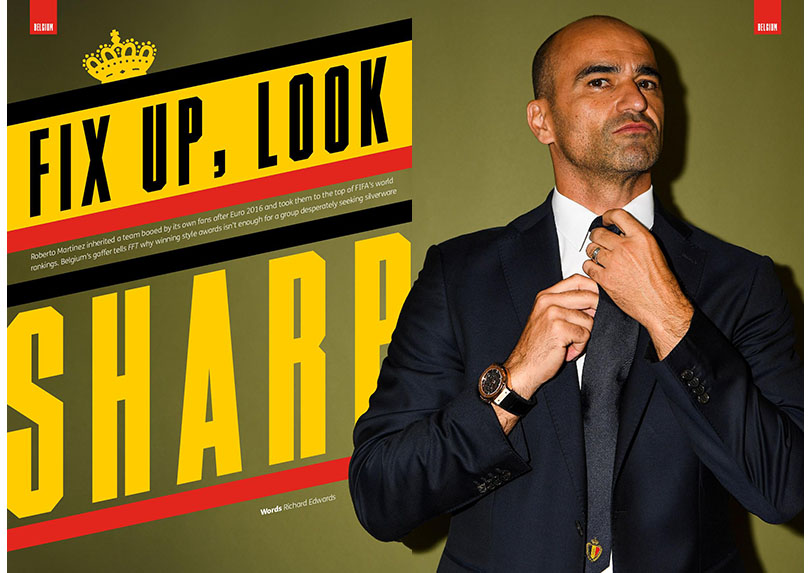
A narrow semi-final loss to France in Saint Petersburg ended their World Cup adventure, although Martinez’s outfit then comfortably dispatched England for a second time that tournament to win the third-place play-off.
Back in 2018, football seemed a relatively straightforward business. COVID-19 sounded more like a Eurovision act than something which might alter life as we know it, forcing football matches behind closed doors and its schedule into chaos.
Former Everton boss Martinez knows all too well that club managers have hid behind the furniture while their players have trotted off on international duty throughout 2020-21, and that there will be no let-up this summer. As it is, though, he argues that international football has rarely been as critical.
“I think it has taken us back to the basics – a country of fans having a shared loyalty,” he continues. “You want to achieve something that as an individual and a player is really hard to make happen. To have international friendlies is not what football needs, but now with the Nations League, World Cup and European Championship together, you have some real context.
“When I was in club football, I sometimes found it difficult to lose my players for two or three games. Now I’m involved, I understand just what a huge impact that can have; how it can improve a player and take him to the next level. That can then feed into what they achieve at club level.”
What he would love to see above all else, however, is another crucial element: namely, the paying punters finally returning.
“It’s essential for many reasons,” says the man who guided Wigan to a shock FA Cup final win over Manchester City in 2013. “It will give the feeling to everyone that we’ve finally got light at the end of the tunnel. It will also be a landmark to have people watching a big tournament again. Football without the fans just isn’t the same. You’d love to have 100 per cent capacity, but any percentage of fans this summer will make a difference.”
Wigan won the FA Cup on this day 2013pic.twitter.com/h32k2Ng0UXMay 11, 2020
Martinez inked a new deal with the Belgian FA last spring, with his current contract now running until the end of the 2022 World Cup in Qatar. It didn’t take much for both sides to shake on the extension.
It’s a measure of his commitment that he’s now not only concerning himself with the senior team, but also working alongside the country’s vaunted youth coaches to ensure
a legacy that will endure long after De Bruyne & Co have moved on.
EURO 2020 How old is Belgium's team?
“That’s part of the challenge and it’s why I was very interested in carrying on after the World Cup,” he explains. “I wanted to have day-to-day responsibility for the generation coming through. They have the reference of this group, so then they have to generate their mentality and know what it takes to be the world’s top-ranked team.
“It’s a double job now. The first is to be as competitive as we can and the second is the other side, opening up the squad and giving young players more opportunities to learn our standards very quickly.”
The line-up that obliterated Belarus 8-0 in March contained 19-year-old Jeremy Doku, for example, who completed a €26 million move to Rennes from Anderlecht last October and has scored a couple of goals in his first half a dozen caps.
It’s no surprise that Martinez has forged such a strong link with his players. Their experiences of moving overseas mirror his own, after all – roots that remain within his own backroom staff that include Jesus Seba, a fellow member of Wigan’s Three Amigos.
“I left my country early and also left my comfort zone,” says Martinez. “At the age of 16, I signed my first professional contract, and at 21 I moved to England to play for Wigan. That’s what my career has always been about – never look at tomorrow, and when you have a job to do, make sure you do it properly on the day. You go to bed and get up the next morning trying to be better. I managed for seven years in the Premier League, and at Swansea when I was 33. I don’t think you could have ever predicted everything that was going to happen to me.”
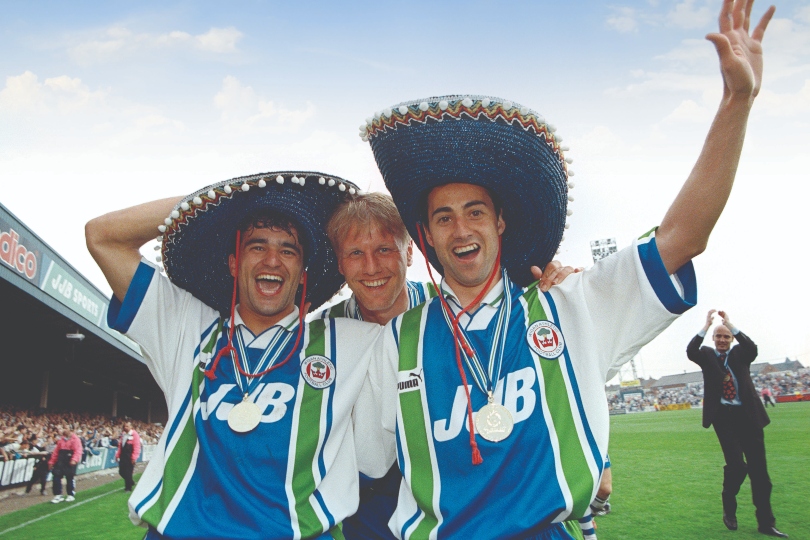
Anticipating the outcome of Euro 2020 is no less an imprecise science, particularly given the tournament’s tumultuous build-up and sheer volume of football that many of the continent’s top performers have played this term. We suggest to Martinez that he may be 18 months from being a European Championship and World Cup-winning boss, just over 25 years since arriving at Wigan as little more than a Spanish curiosity.
“That sounds too easy,” he smiles. “This sport doesn’t give you those easy situations. Many fans say that Belgium are their second nation – that’s as big a compliment as you can get at international level. We know that the Dutch have been an exemplary team in that respect without winning a World Cup. They have always been a followed side due to the way they play.
“In Belgium, there’s a real pride in playing for this team – one that’s a great example of how to use individual talent in a collective manner. They face adversity well and they’re very exciting to watch, even if you have no attachment to them.”
Martinez’s own attachment has never been stronger. And those dark days of Euro 2000 have never seemed so distant...
This article first appeared in the Summer 2021 issue of FourFourTwo
Subscribe to FourFourTwo today and get a FREE England Euro 96 shirt!
READ NEXT
FOR YOUR HOME Euro 2020 wall chart: Download free with full schedule, fixtures and dates
REFS Euro 2020 referees revealed: who are they, how were they selected and will VAR be in use?
